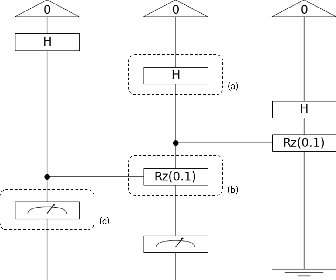A multiclass Q-NLP sentiment analysis experiment using DisCoCat
Paper and Code
Sep 07, 2022



Sentiment analysis is a branch of Natural Language Processing (NLP) which goal is to assign sentiments or emotions to particular sentences or words. Performing this task is particularly useful for companies wishing to take into account customer feedback through chatbots or verbatim. This has been done extensively in the literature using various approaches, ranging from simple models to deep transformer neural networks. In this paper, we will tackle sentiment analysis in the Noisy Intermediate Scale Computing (NISQ) era, using the DisCoCat model of language. We will first present the basics of quantum computing and the DisCoCat model. This will enable us to define a general framework to perform NLP tasks on a quantum computer. We will then extend the two-class classification that was performed by Lorenz et al. (2021) to a four-class sentiment analysis experiment on a much larger dataset, showing the scalability of such a framework.
 Add to Chrome
Add to Chrome Add to Firefox
Add to Firefox Add to Edge
Add to Edge